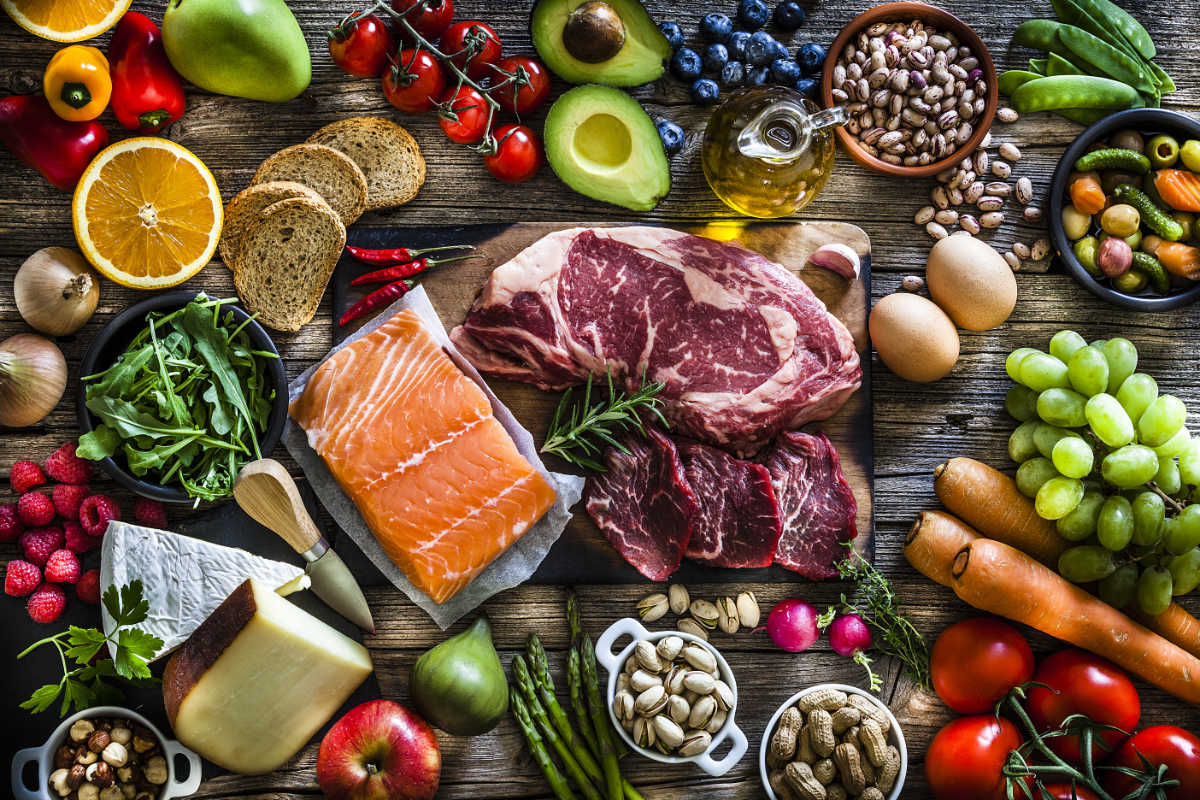Here’s what you really need to know about protein according to nutrition experts – including protein facts such as how much you really need, and is meat protein always better?
When it comes to protein, it can be hard to separate protein facts from fiction. As the old saying goes abs are made in the kitchen – and it’s protein, specifically, that holds a big chunk of the key to a leaner, stronger you.
And what about people who don’t want to eat meat as a source of protein? How can you get more protein into your diet without eating meat? We’ve listed five ways below that are worth trying.
Protein facts versus fiction
For years, health-conscious dieters have been following the simple rule that to tone up and shift fat, you just need to eat fewer calories. But this overlooks some major factors – including the fact that your body needs protein to build and repair the muscle cells that are damaged during a workout.
Plenty of us are now waking up to the idea that looking and feeling great isn’t just about cutting down, but also means making sure we’re eating enough of this vital macronutrient, with healthy and delicious meals that don’t scrimp on calories.
But, what actually is protein, how much should you be consuming, and will it turn you into the Incredible Hulk overnight? We called in the experts on protein facts…
Looking to keep your joints healthy while exercising? Read the Wise Living guide to foods for joint health – 10 foods that can help arthritis symptoms.
Why is protein important in our diets
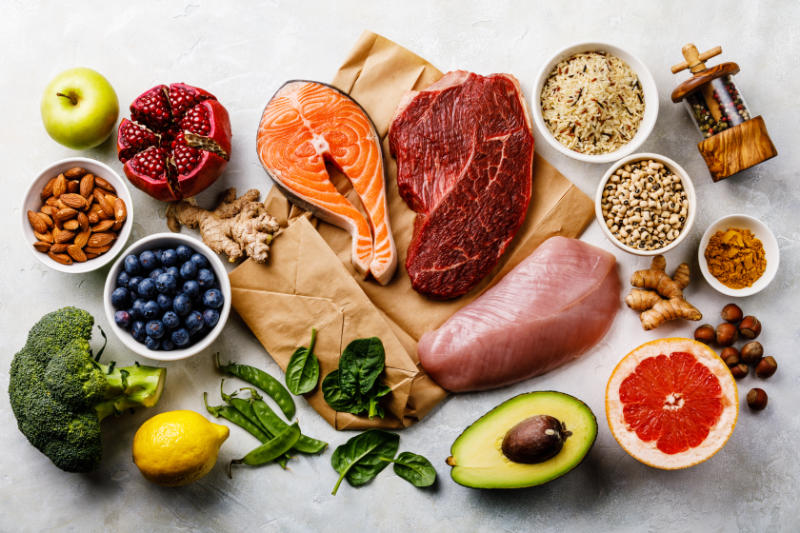
Think of it like the Lego bricks of your body. “Protein is needed in every cell of the body – for growth, repair and structure,” explains Ruth Tongue, nutritionist at Foga.
“Not only is it an essential building block for muscle, skin, bones, teeth, blood and cartilage but it also makes up enzymes and hormones, all of which are essential for everyday functioning.”
When the muscle fibres becomes damaged during exercise, they need protein to rebuild and repair. Like carbohydrates and fat, protein is a macronutrient, which means you need relatively large amounts of it in your diet to stay healthy.
Protein also replaces worn-out cells and transports various substances throughout the body. Good sources include eggs, fish, seafood, chicken and turkey, soya, milk and nuts and seeds.
Read about microbiomes explained and why gut health is key to your wellbeing.
Is there a difference between plant-based and meat protein?
“Yes absolutely,” says Tongue, “and there are benefits to both.”
James Collier, head of nutrition and co-founder at Huel, explains: “All proteins are different, in that they consist of different amino acid chains. Amino acids are the simple units that make up proteins – nine of which we have to obtain from our diets.
“There are misconceptions about plant-based proteins, in that people claim that they are inferior to meat, eggs and dairy proteins, which isn’t the case,” assures Collier.
“Although the amino acid profile of a single plant-based protein source may be inferior to an animal protein, this is easy to get around simply by combining more than one source of plant protein in a meal.”
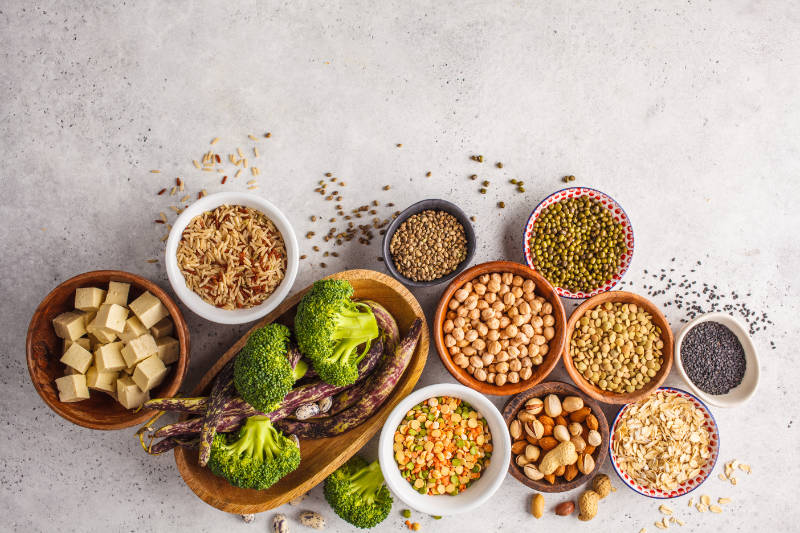
For example, Collier explains that beans and rice both contain good amounts of protein and together provide an amino acid profile that’s just as good as animal proteins. With a bit of planning, you can get just as much protein from a vegan diet as you can a meat-based one, but you need to do some homework and plan ahead to make sure you’re getting enough.
Learn why eating avocados may help prevent weight gain in middle age.
Should you supplement your workout with protein shakes?
It depends what your gym goals are. “For anyone who’s eating a balanced diet with protein sources at each meal, it’s not at all necessary to supplement with protein shakes, unless they’re really struggling to maintain weight or they’re keen to increase body weight,” says Tongue.
“The only people who may benefit from protein supplementation are hard-training strength athletes, but even these folk don’t need anywhere near as much as is often recommended and consumed,” says Collier.
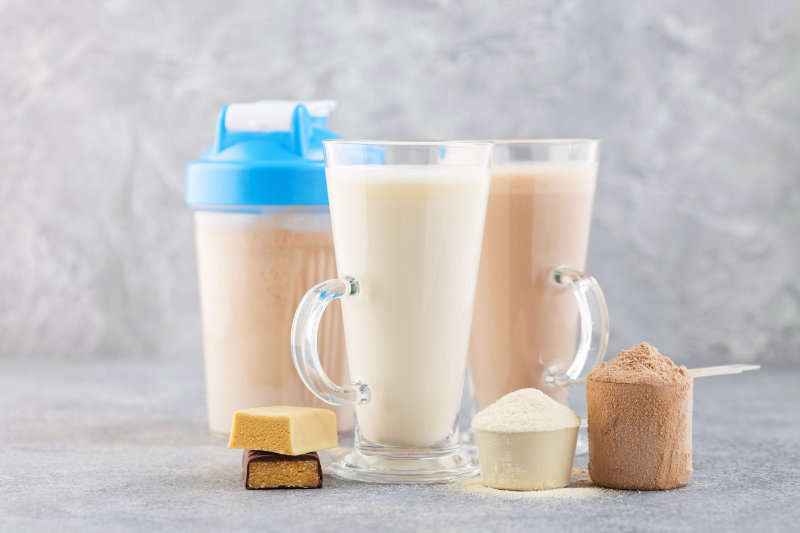
Plenty of boutique gyms and studios will sell protein shakes or smoothies, and it’s a protein fact that they can be a convenient way to increase your intake protein, which is needed to support muscle growth. However, Collier adds that protein shakes aren’t superior to good protein intake from food, so it’s always better to opt for the real deal if you can.
“If you are opting for shakes or powders, I would recommend choosing products that have a reasonable amount of protein in them but have no added nasties or sugars,” says Tongue.
How much protein should you eat?
“This is a question of much debate,” says Collier. “Both the EU and the US recommended daily intakes of protein are just 50 grams per day; this is the absolute minimum and it’s a level that’s relatively easy to consume.”
Typically, most people who consume a varied diet manage to consume more than this amount.
As Collier explains though: “The problem with a simple figure is that it doesn’t relate to anything in respect of protein quality; there are essential minimum intakes of each of the nine essential amino acids set by the World Health Organisation.
“There are different methods of looking at the quality of protein, and the most validated ones look at the breakdown of amino acids and how readily the proteins are digested and absorbed,” he adds. “Proteins with the highest scores are animal-based, mainly because individual plant-proteins tend to have lower amounts of one or more of the key amino acids. However, a combination of more than one plant-based protein source also gives a perfect score.”
Consuming good amounts of protein can help maintain an optimal body composition, a healthy metabolism, and good athletic performance. “As a rule of thumb, you should aim to get between 20-30% of your total energy intake from protein,” says Collier.
Protein facts: can you eat too much protein?
“Yes definitely,” says Tongue. “While protein helps us to stay feeling full, we know that if we eat too much of it, without cutting back on other calories, it will be converted to fat.
“In addition to this, if we’re getting this protein from animal sources, in particular red meat, it could raise our risk of certain cancers, high blood pressure and heart disease,” she adds.
“People who have any underlying kidney conditions should also avoid excess protein, as this will increase pressure on the organ.”
Collier reassures though: “The level of protein that would lead to health issues in healthy individuals is huge, and would usually only be brought on by an overly-excessive calorie intake.”
If unsure about your nutritional needs and intake, it’s always a good idea to consult with a qualified health professional.
How to eat more protein without eating meat
High-protein diets are everywhere right now. Reality TV star Kim Kardashian, model Emily Ratajkowski and actress Kate Upton have all counted a high-fat ketogenic diet, rich in protein, as one of the ways to keep their famous figures in shape.
As well as aiding weight loss and helping to build lean muscle, eating protein is pretty important for your health: it’s a protein fact that you you can feel more energetic and fuller for longer, as well as supporting bone health and assisting hormone production.
Typically we think of meat and fatty fish as the best source for upping our protein intake, but with the recent rise of vegetarianism and veganism, more of us than ever are looking at alternative ways to stock up on the macronutrient.
For those still hesitant at the idea of a 12oz steak for breakfast, we spoke to Holland & Barrett nutritionist Emily Rollason to find five top tips to sneakily get more protein into your diet.
1. Eggs are packed with protein

“It can be tempting during these chilly mornings to reach for the sugary cereal, or even a hot bacon roll,” says Rollason. How much protein is there in an egg? “A single egg contains over six grams of protein, along with essential amino acids, plus vitamins A, E and B12. Try a grown-up take on dippy eggs and soldiers by combining two boiled eggs with asparagus wrapped in Parma ham for a weekend brunch treat.”
2. Snack on sunflower seeds
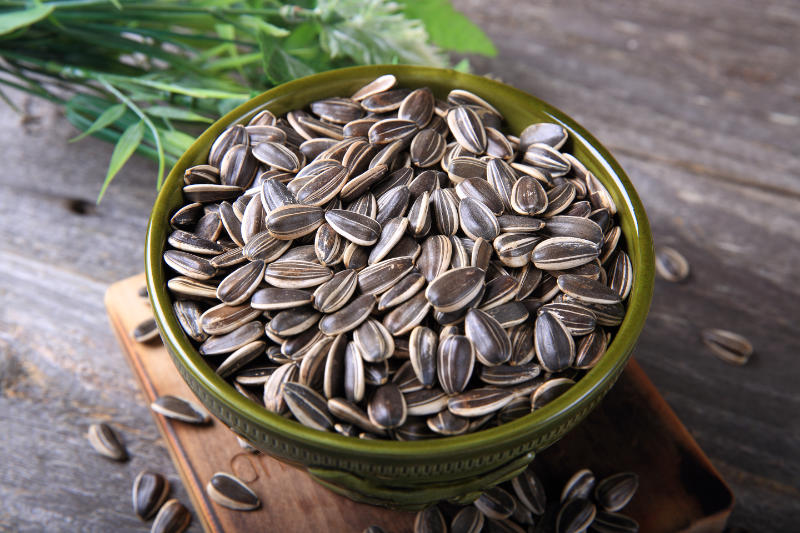
Take a note out of Victoria Beckham’s book when it comes to snacking. “Beckham recently shared her afternoon treat tip of sunflower seeds doused in liquid aminos (a gluten-free alternative to soy sauce),” says Rollason. “Each handful will rack up an extra five grams of protein and they are packed with essential fatty acids and micronutrients such as magnesium, which has been shown to help regulate blood sugar levels.”
3. Eat Greek yoghurt for a protein boost
“If you’ve been dieting for a while, your ‘treats’ might consist of low-fat yogurts, but in fact these can be packed with hidden artificial sweeteners,” says Rollason. “It’s time to turn your mindset around and fill up on Greek yoghurt instead. It’s packed with protein and can be made sweet with berries, or added to savoury dishes to add richness.”
4. Reach for high-protein drinks
Hands up if you’ve been doing great with your new healthy exercise routine but just can’t shake those morning lattes? “It’s not that coffee itself is a danger to diets, but so many low-fat alternatives are filled with nasty sweeteners,” says Rollason, “which add no protein to the diet and spike your energy levels, only to produce a slump a few hours later.” Instead, try a high protein drink instead.
5. Nutritional yeast is a great source of protein
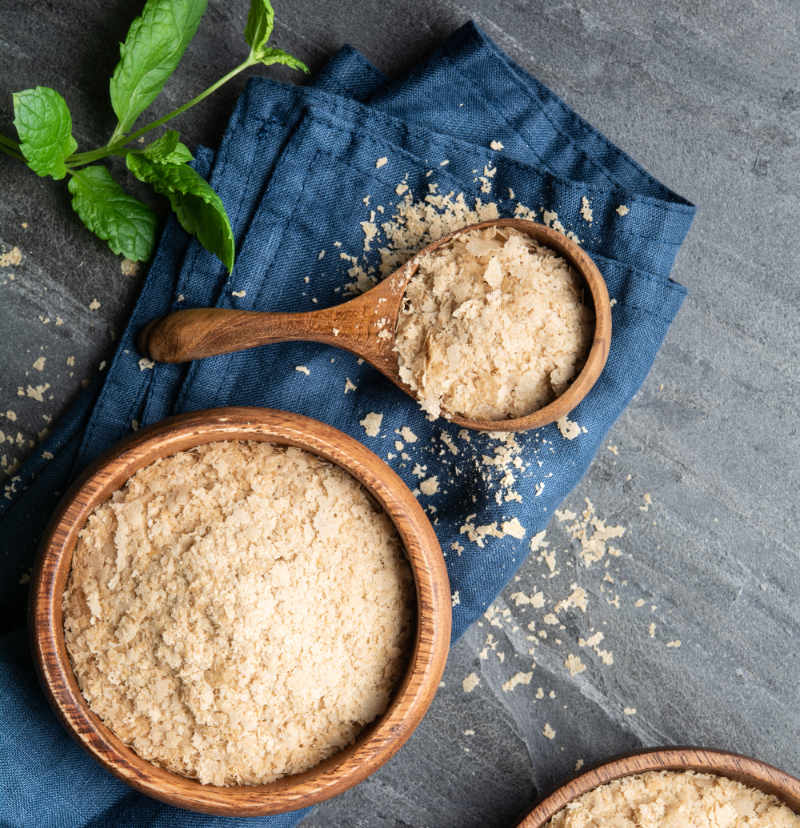
For those looking for an alternative to cheese, nutritional yeast – or ‘nooch’ to those of us in the know – could be exactly what you need. “Use it to stock up on six grams of protein per serving compared to a mere two in Parmesan cheese,” says Rollason. “You also might want to try garnishing your next batch of popcorn with ‘nooch’ to give yourself a cheesy, protein-filled boost.”























































